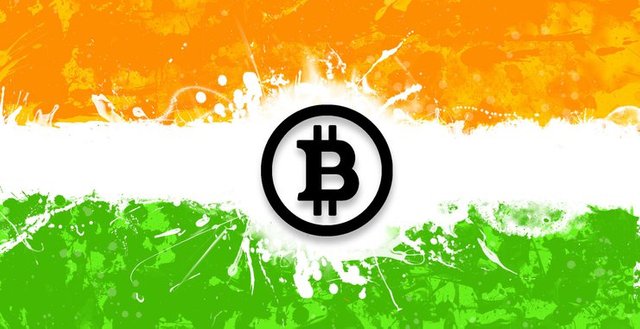July 5, 2018 May Be Last Day For Crypto In India
JULY 5 IS COMING – WHAT ARE YOUR OPTIONS FOR INDIAN CRYPTO TRADERS?


Many people have been asking this question everyday. What are we going to do after July 5th? For those who haven’t realised yet, July 5, is the day when banks are supposed to terminate their relationship with all entities that deal/trade in crypto.
This means, the bank accounts of cryptocurrency exchanges will be closed. The accounts of the individuals found to be trading in cryptocurrency will also be closed. Most importantly, this is not limited to banks, all entities under RBI has to follow this rule. So no wallets or payments app can help as well.
The day the ban was announced, the prices for cryptocurrency dumped in the country by as much as 40% and retraced back within a week. The point is, no matter what happens, the crypto prices won’t be affected even after the ban comes into effect. However, the volume of trading has been steadily decreasing probably due to the fear of losing crypto assets, thanks to RBI.

You may wonder, what are our options after July 5? We have a few, I wanted to list them all.
WHAT SHOULD CRYPTO TRADERS DO AFTER JULY 5?
SLIVER OF HOPE IN SUPREME COURT ON JULY 3, 2018 ##
Before we get into what needs to be done if the virtual ban comes into effect, we need to talk about a possible tiny sliver of hope.
On July 3, the Supreme court will be hearing the appeal from Internet and Mobile Association of India (IAMAI) against the Reserve Bank of India. It turns out this one case against the RBI’s decision got a hearing in the vacation court.
The other major case in the supreme court is due to be heard on July 20, but this particular case can help get some grace period on RBI’s decision and keep the Cryptocurrency trading alive in the country.
And now, The Options:
OPTION 1: WITHDRAW OR UTILIZE INR ON EXCHANGE’S ANNOUNCEMENT
All exchanges will announce their deadlines to shut support for INR based trading. Since most exchanges now offer a crypto-to-crypto market, it is highly unlikely that exchanges will be shut down. When the announcement happens, people will rush to sell their crypto and withdraw INR in whatever time is left.
But if you want to stay into crypto trading, do not sell your crypto. Withdraw your INR if you do not want to invest or buy crypto with your INR before the last date. You can then trade your holdings in crypto to crypto market. Another possibility is that exchanges will abruptly stop INR services, do not panic, buy cryptocurrency and use the next options to cash it out.
BENEFITS
- You can still keep trading
- No risk of losing your bank account.
RISKS
- The prices may fall in India and perhaps globally as a temporary shock. You need to have the appetite to absorb the risk.
OPTION 2: BUY OR SELL CRYPTO ON P2P EXCHANGES
Peer to Peer exchanges are an alternative to the orderbook exchanges like Koinex, Zebpay, Bitbns, etc. In a peer to peer exchange a buyer directly deals with the seller. The buyer pays INR into seller’s account and the seller releases the Cryptocurrency which goes to Buyer’s wallet. All P2P exchanges have some sort of escrow mechanism so that seller cannot run away with your money.
Some of the P2P exchanges we have used and reviewed are LocalBitcoins, Instashift, Giottus and so on. Subscribe to us on Youtube, we will upload tutorial of using P2P exchanges soon.
BENEFITS
- Money comes directly or goes out directly from Bank Account.
- Discrete if exchanges do not need KYC and/or based outside of India
RISKS
- Low Risk: Banks may identify your account for a potential crypto trade and close it
- Low Risk: If you are not vigilant, you can be a victim of fraud. Just be careful.
OPTION 3: OVER THE COUNTER (OTC) TRADE
Get back to the old school ways. Find people who want to trade cryptocurrency in cash or bank transfers and deal with them in person. You can take the cash and transfer the cryptocurrency to the person during the meeting. I want to remind you that this was an option suggested by none other than Secretary of economic affairs Subhash Chandra Garg, when he was asked if crypto is a dead asset by an editor.
BENEFITS
- No one will actually find out. It is a deal in cash and for most times Cryptocurrency addresses keep the Crypto traders anonymous.
- Crypto trading is not banned in India. Legally it is not an offence.
RISKS
- High Risk: Relying on strangers can be dangerous. Only trade with mutual friends or known people.
- Cash Transactions if caught can put you on the radar of the Income tax department.
OPTION 4: INTERNATIONAL REMITTANCE SERVICES
There are many players like Payoneer, Neteller, Skrill, Paypal, etc that offer services like transferring money from anywhere in the world to India. You can sell the cryptocurrency in an exchange out of India and transfer money to your bank account using these services. Be ready to provide an explanation though in case your bank or authorities ask.
Exchanges like CEX.io, Bitpanda, Virvox, etoro, etc allow such services.
BENEFITS
- Aside from liquidating your assets and being able to trade, there are no benefits
RISKS
- High fees
- Higher values can red-flag the transactions and alert authorities like Banks, income tax department.
OPTION 5: BUILD A PARALLEL ECONOMY
Cryptocurrency may not be a legal tender in India, but it is legal to accept payments in Cryptocurrency. You see, a cheque, a credit card swipe is also not a legal tender by definition. A legal tender is currency notes or coins. As long as an instrument can be converted to legal tender, it can be accepted as a form of payment.
So why not start buying and selling stuff among each other in cryptocurrency? If you need a coffee pay for it in cryptocurrency, the store owner can then pay for the raw material in cryptocurrency, the raw material owner can buy something else using crypto. That is what a free market is about. So just go ahead and start buying and selling things using cryptocurrency. You can always create a group on telegram, and transact amongst yourself.
BENEFITS
- Your crypto holdings can finally be used in the real value of money
RISKS
- If somebody wants to encash it, they have to go through one of the about options and they have their own specific risks
OPTION 6: HODL
Now I personally believe that sooner or later the Government of India is going to come around and say, fine you win. I am also certain that the government will never admit that the people won. But eventually, they will put regulations in place and allow crypto trading. It is also possible that the exchanges and individuals win the case against RBI in Supreme court and the RBI ban is lifted.
Be brave, hodl and wait for the glorious day.
Do I really need to share the benefits and risks here?
OPTION 7: REINVEST OR DONATE
Use the cryptocurrency you are holding into investing in schemes which can give you return on it. Some options are staking, P2P lending, good ICOs, etc. If Bitbns survives the INR based ban, lend your crypto there.
Alternatively you can donate the Cryptocurrencies to charities that accept them. If India somehow goes a step further and bans cryptocurrency, every step above will become illegal, in that case the best way to use a dead asset is to donate it for someone’s good.
FEW MORE TIPS:
- Keep a record of all transactions you do in foreign exchanges. Income tax is different than RBI, they may ask a lot of things.
- Do not invest more than you can lose. The regulatory fever is spreading worldwide and we never know what news can bring the prices down.
- Do not get involved in anything illegal.
- At the end of the day, Crypto is risky, do your own research before doing anything.
What do you think of our options for the doomsday? Let us know in the comments below and share this with fellow Indian Traders.
LIKE | FOLLOW | RESETEEM
Hi! I am a robot. I just upvoted you! I found similar content that readers might be interested in:
https://coincrunch.in/2018/06/21/july-5-is-coming-what-are-your-options-for-indian-crypto-traders/
Follow @bible.com